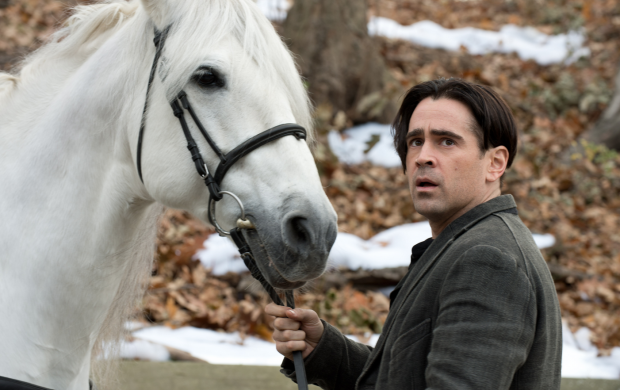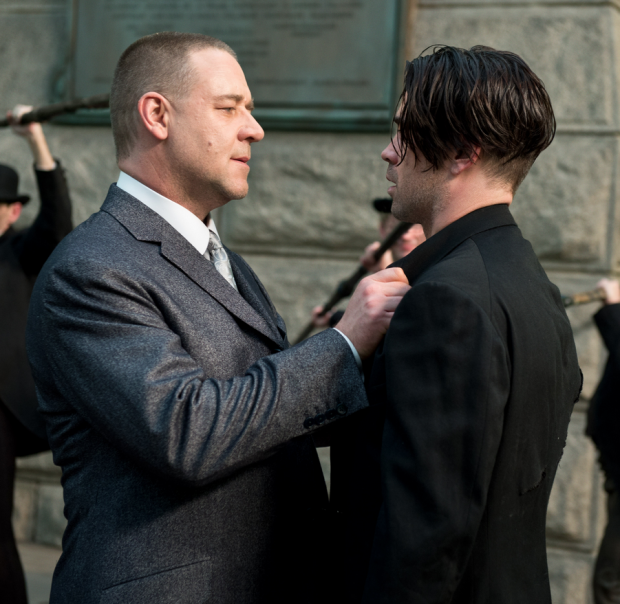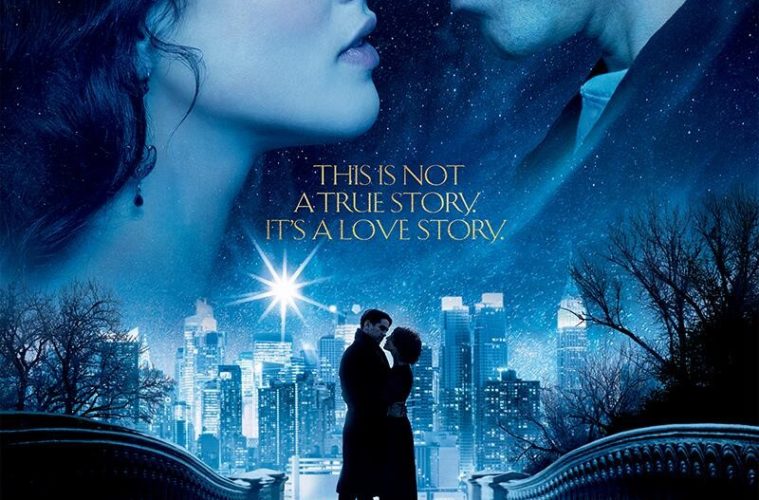The bevy of woeful decisions made by writer/director Akiva Goldsman throughout his adaptation of Mark Helprin‘s impressive 1983 novel Winter’s Tale will surely be discussed for some time. Or perhaps the whole mess will be forgotten, only to be remembered in a couple of decades and reaffirmed as some kind of inspiring, Hudson Hawk-level disaster. Either way, this is the kind of miscalculation that must be seen to be believed.
As an avid fan of the source material, it’s easy to see how a film adaptation could quickly go array. Helprin’s book introduces over a hundred characters, spans over a full century and is near 800 pages long. But when one considers its long journey into film form (simply put, it’s been Goldsman’s passion project for some time now), the whole endeavor appears to have been doomed from the start, suggesting an epic heap of wasted time and stress and money.

At nearly two hours long, Goldsman focuses his film on the tale of Peter Lake (Colin Farrell), a master thief living in 1915 New York, on the run from a vicious criminal named Pearly Soames, played by Russell Crowe in one fell swoop of brazen overacting. In an attempt to steal some loot and get out of town, Peter breaks into a beautiful house on the Upper East Side. There he meets the young, beautiful Beverly Penn (Jessica Brown Findlay) and falls in love. She’s rich and dying of consumption. He’s poor and Colin Farrell. Their stars are crossed from the start.
 It is here we discover that Pearly is a demonic soldier determined to kill Peter, who was once his prized disciple. But when Peter travels with Beverly to the Lake of the Coheeries (an important setting within the novel that is barely touched on here, one of a few confusing inclusions from the book that feel like half-baked shout-outs that serve no real purpose), Pearly must get permission to travel out of the boroughs to hunt him down.
It is here we discover that Pearly is a demonic soldier determined to kill Peter, who was once his prized disciple. But when Peter travels with Beverly to the Lake of the Coheeries (an important setting within the novel that is barely touched on here, one of a few confusing inclusions from the book that feel like half-baked shout-outs that serve no real purpose), Pearly must get permission to travel out of the boroughs to hunt him down.
What follows is one of the most ill-advised cameos in the history of cinema. If nothing else, Winter’s Tale will survive through the GIFs this one scene will generate.
This is, no doubt, a bold directorial debut from Goldsman, who’s made a name for himself in Hollywood as an uber-successful screenwriter who’s done everything from write Batman and Robin and to win an Oscar for A Beautiful Mind. There are so many ideas floating around in Winter’s Tale, it feels like Goldsman is simply trying to keep up with his own film. As a director, he shows no clear visual eye, many scenes cutting together poorly. And though we are given some beautifully framed pieces, thanks to accomplished cinematographer Caleb Deschanel, they are mostly in vain.
We need more originality in Hollywood, and Warner Bros. has been something of a champion – in these trying times – of originality. This will prove a step back in the build to a riskier studio system, and that is quite a shame.
Winter’s Tale hits wide release on Friday, February 14th.

